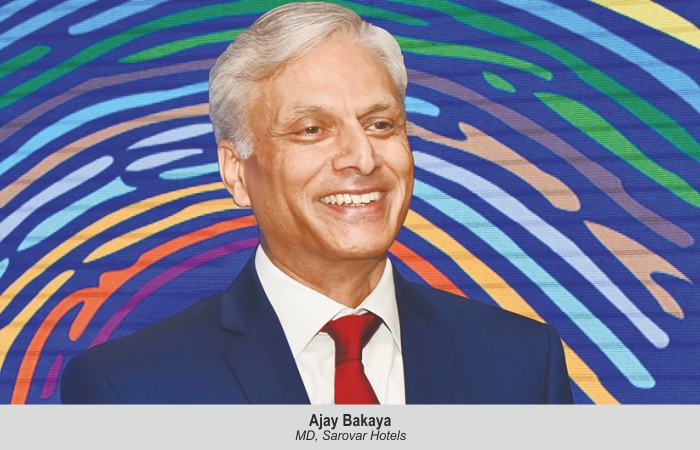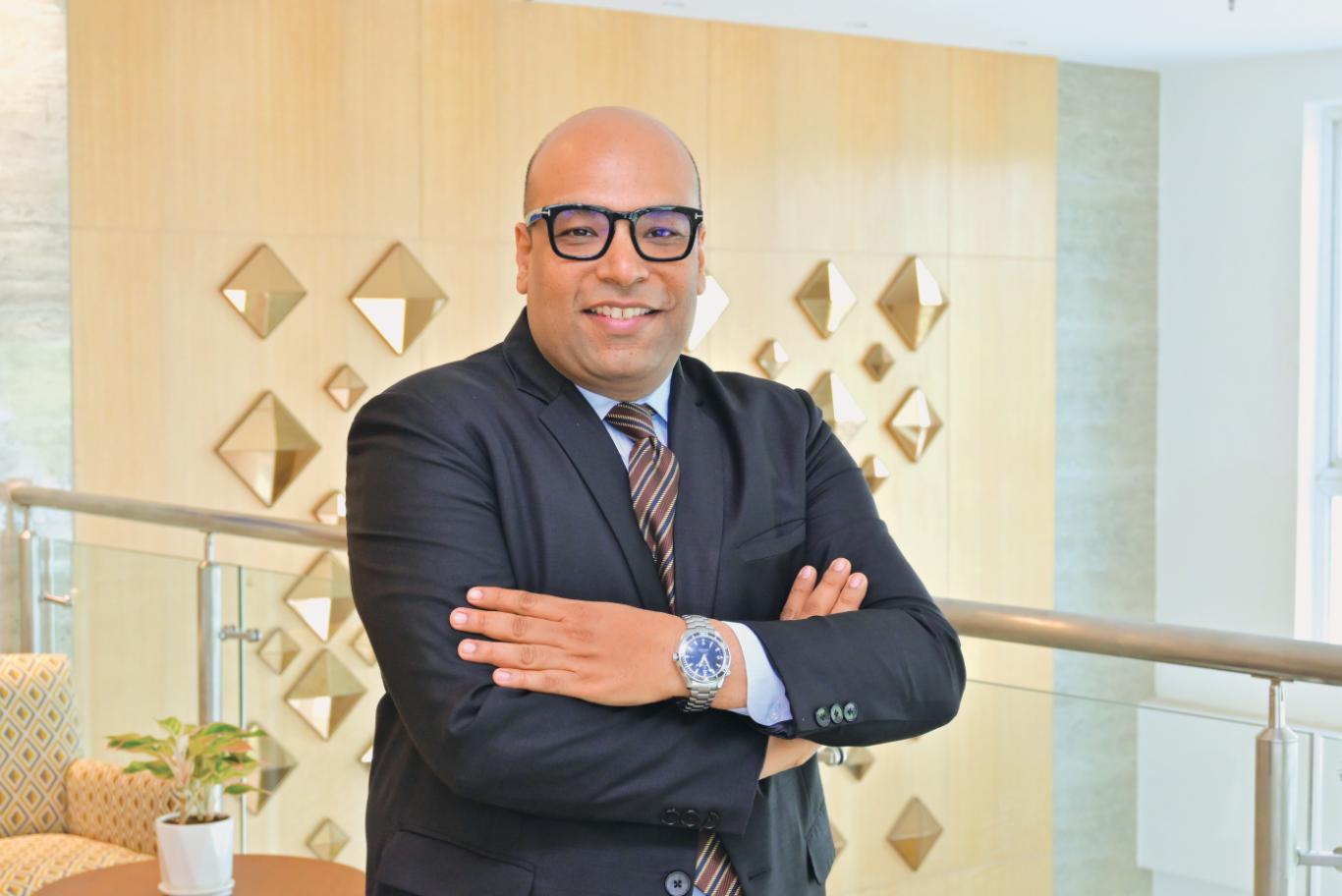Unlike many other hospitality chains, Sarovar Hotels took difficult decisions during COVID-19, and also learnt from them. The hotel chain is eyeing to breach 100-hotel mark this year by opening more properties across India.
Nisha Verma
While the pandemic hit almost every hospitality chain, many of them had to take hard decisions to sail through the crisis situation. However, not many admit that there were decisions that turned into learnings. Ajay Bakaya, Managing Director, Sarovar Hotels, claimed that while they did not make any blunder in the beginning, they were never found wanting in taking decisions.
“We were the first ones to go ahead with reducing staffing, rotating staff and cutting costs. We started vaccinations right at the beginning. As difficult in hindsight it is to say, but perhaps we could have anticipated it more. Still, I would honestly do exactly what I did in those 12 to 18 months,” he says.
But he insists that lessons were learnt. “We were looking at cutting down costs dramatically. We compromised in some of our hotels on upkeep and maintenance of plant and machinery, which hurt us very badly when it was time to get back in action in a big way. So, the lesson was learnt and it’s been already put in place,” he tells.
Another lesson, he says, one should learn is not to let one’s guards down. “With the COVID-19 second or third wave being milder, one tends to take a lot of things for granted. That is where we are going to be extra careful,” he adds.
Insisting that they took all the actions when needed, Bakaya says, “We are not people who were fence-sitting and waiting in the initial stages from March 2020. One challenge that all hotel chains are facing is that we had to let a lot of our people go. At one stage, we had to lose almost 50 per cent of our workforce. To my mind, there were 50 per cent people without jobs. Now, when I have the business back and I am calling these people, they are not available or not keen to join back in the hotel industry. Going forward, we would make sure that the General Manager himself sat with every single person of the team that we see leaving, on his own or otherwise, to figure out the reason for leaving and leave a window open until things got better.”
Standing up to the pandemic
During the second wave, one property of Sarovar Hotels in Gurugram was converted into a COVID-19 hospital. However, the model was not replicated in any other property. Bakaya explains, “We did not do it in more properties firstly because it was an expensive exercise and needed corporate sponsorship. However, for those 45 days, we saved a fair few lives.”
Revival
When it comes to revival, Bakaya believes it is vital for the workforce to be properly trained. “Our emphasis is on training and getting all the frontline staff back on board. Hotels cannot engineer revival, but it is the market engine that controls it. We had a good run from July to December as well as from October to December. Our December 2021 revenues for Sarovar Hotels were higher than December 2019 revenues. We had taken a big tumble in January. In March, we could get back on track on our budgeted numbers,” he added.
Looking at future
Sharing details about their plans, Bakaya informs, “We have 45 hotel projects running currently. We are conservatively committed to opening eight hotels in the calendar year 2022, which would allow us to comfortably breach the 100-hotel mark.”
Industry outlook
Bakaya believes that the hospitality industry follows the Indian economy. “I think the economy will see an upswing that we last saw from 2003 to 2007. In the next three to five years, we are going to see an upswing in the hotel business and hotel rates. I’m very confident of that, especially with the government’s impetus on Make in India and ease of doing business,” he shared.
Government’s role
As far as the hotel industry is concerned, Bakaya believed that the government has been a very patient and sympathetic listener. “We are pitching strongly to have the hotel industry benefit from infrastructure status and we have reached out to several quarters,” he says.
Technology and jobs
While Sarovar Hotels has adopted technology, he said he doesn’t believe it would compromise on jobs. “We accept the number of physical meetings will reduce and many people would prefer managing things online. Some of it would change in reverse as we need to interact with real human beings. Technology is not meant to reduce jobs, but it means many people working on the technology. The key for hotels is to make sure there is a healthy balance for the customers,” Bakaya said.
 TravTalk India Online Magazine
TravTalk India Online Magazine





